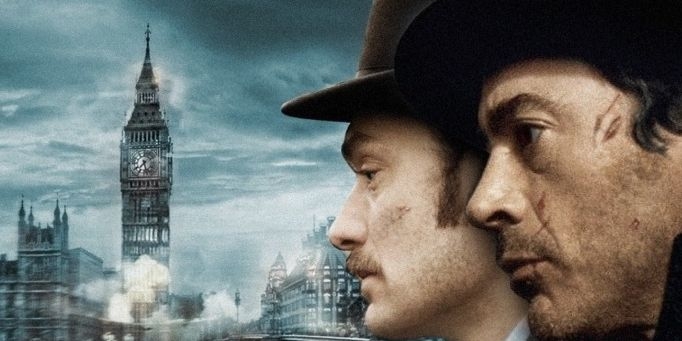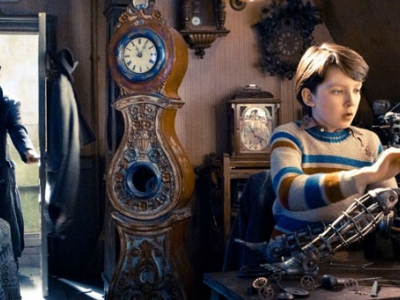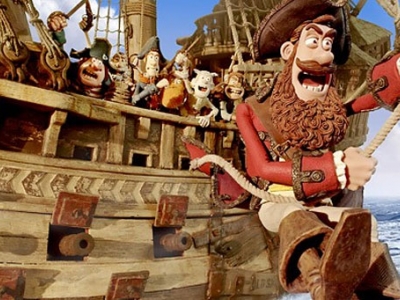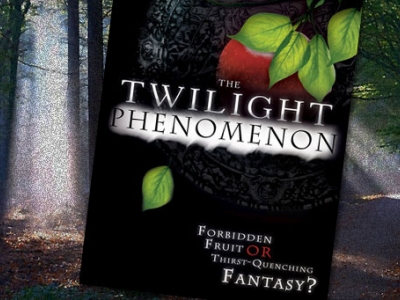
Sherlock Holmes: A Game Of Shadows
Do we all have the capacity for major evil? Holmes is back in a great movie to watch with older kids.
Can you please everyone?
It’s Friday evening and you’re looking for a film that both you and your grown kids can enjoy. The trouble with most multi-person quests for the perfect movie is that once you move beyond a group of three, there’s a fair chance at least one person has seen everything there is to offer, and so few of them bear watching a second time. But you’re in luck. Sherlock Holmes: A Game Of Shadows has been released on DVD. Now you have an option that provides your energetic son with the explosions he craves, your film-buff daughter with a demonstration of cinematic skill, and you a stirring storyline worth considering.
Robert Downey Jnr. returns in his second romp as the literary world’s most accomplished detective, accompanied once again by Jude Law as the stolid doctor Watson. Towards the close of the 19th century Holmes stumbles across a spider’s web of evidence that suggests someone is edging the world towards apocalypse. Enter Jared Harris as the arch criminal Professor Moriarty. The esteemed academic has been knocking off industrialists and quietly acquiring their holdings in companies that manufacture all the elements necessary to pursue a successful war. Now that he is set to reap the economic benefits, all the professor needs to do is produce the right spark to ignite international anger. Can Holmes and Watson douse the flames before violence engulfs Europe?
More than just special effects
A Game Of Shadows is an excellent showcase for what English director Guy Ritchie can do with top talent and a substantial special effects budget. The film is filled with the same fluid time-play that Ritchie developed in Lock Stock And Two Smoking Barrels and brought to fruition in his previous Sherlock Holmes outing. There’s also plenty of plausible invention regarding what could be done with gears and levers prior to the arrival of the computer chip. And though the script initially seems to suggest that world war could only be the dream of an arch villain, a much more mundane and decidedly Christian truth emerges. The desire to elevate ourselves, and the pain that follows, is the result of the cumulative evil of very normal men. Moriarty chides Holmes when he fails to grasp the lesson:
“Weren’t you surprised that your telegram did not inspire more effort to stop me? You’re not fighting me so much as the human condition. All I want to do is own the bullets and the bandages.”
But you’d be mistaken if you thought that human evil was the film’s only focus. Ritchie has set his sites on a much more humble characteristic. Game Of Shadows opens with the lead up to Watson’s wedding and the turning point it represents in his friendship with Holmes. Rather than suggest that one relationship must give way to the other, the film demonstrates that the love that undergirds the best friendships can accommodate even this much change, because it has the beloved’s best at heart.
Watson foregoes his honeymoon to follow his detective friend “... once more unto the breach,” and Holmes teases him as they are about to enter a life-threatening assault on Moriarty's lair:
Holmes: Are you happy?
Watson: What?
Holmes: At this moment are you as happy as you would be on your honeymoon at Brighton?
Watson: I'm not going to grace that question with an answer
But the truth is friends can be happy even in the midst of the most difficult times simply because they are confronting them together. It’s a similar idea that the apostle Paul tries to convey to the Philippians when he tells them to “... count it all joy when you encounter trials of various kinds,” because those very strains would play a role in building the faith they had in the God who would carry them through.
Watch carefully for the expression on each face when the ultimate struggle between Holmes and Moriarty takes place. You’ll see the villain terrified because he stands to lose everything in a matter of seconds. Holmes, by comparison, is at peace. He doesn’t fear paying the ultimate price because he knows he’s doing it for the sake of his friend, who would likewise do anything for him. This is ‘the peace that passes all understanding’ which undergirds the Christian in crisis: we don’t simply sacrifice because it is our duty, but because we love the One who gives our sacrifice meaning. We enjoy a relationship that God has given everything to establish. Having experienced it, how could we fear to give everything in return?
Watching 'Game of Shadows' with your kids
This is a great opportunity to get older kids thinking about the complexities of friendship. Clearly Watson and Holmes’ friendship is not based on Holmes making Watson feel good. The questions below might help them begin to understand how service and sacrifice should build rather than break down relationships:
- Why does Watson put up with Holmes?
- Does Watson like Holmes more than his wife?
- What’s the foundation of Watson and Holmes’ friendship?
For more articles from Growing Faith, subscribe to our monthly e-newsletter.
To hear about the latest books and resources from Youthworks Media, subscribe here.







